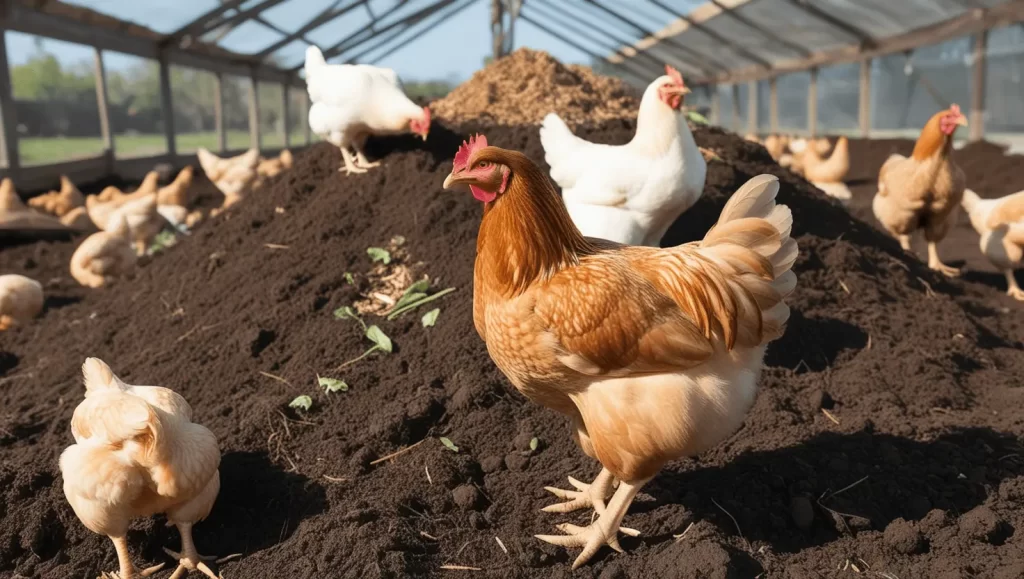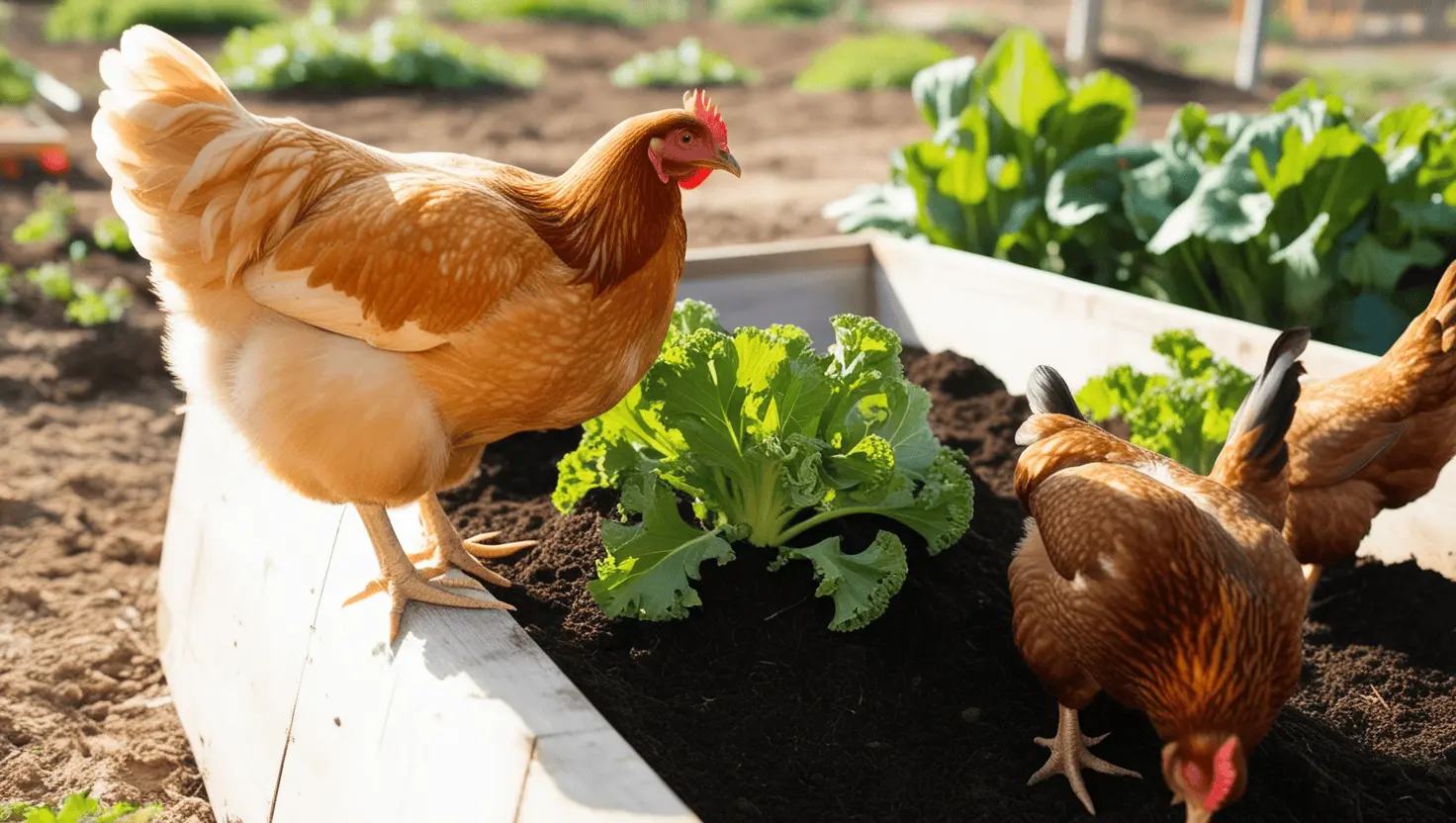Chicken manure is often considered one of the best natural fertilizers for enhancing soil health and promoting plant growth. Its richness in essential nutrients, particularly nitrogen, phosphorus, and potassium, makes it a sought-after option for organic gardeners. However, understanding how to use chicken manure effectively is crucial to reaping its benefits while avoiding common pitfalls. In this guide, we explore everything you need to know about using chicken manure as fertilizer.
What Is Chicken Manure?
Chicken manure, or poultry manure, refers to the droppings from chickens mixed with other materials such as bedding, feathers, and leftover feed. This combination forms a nutrient-rich organic material. What sets chicken manure apart from other animal manures is its high nitrogen content, often containing at least twice the nitrogen found in cow or horse manure.
Moreover, chicken manure is also rich in phosphorus, which is essential for root development and flowering in plants. The potassium content further enhances plant resilience and water regulation. Combined, these macronutrients form an effective fertilizer that supports various stages of plant growth.
However, the quality of chicken manure can vary depending on factors like the age of the chickens, their diet, and the type of bedding used in the coop. Fresh manure, especially from non-organic farms, may contain unwanted contaminants, such as antibiotic residues, which is why proper handling is crucial.
Benefits of Chicken Manure for Your Garden

1. Nutrient-Rich Fertilizer
Chicken manure is a complete fertilizer, containing not only the primary nutrients—nitrogen (N), phosphorus (P), and potassium (K)—but also micronutrients like calcium, magnesium, and sulfur. These trace elements play a vital role in enhancing soil fertility and promoting the healthy development of plants.
2. Improves Soil Structure
Beyond just providing nutrients, chicken manure is an excellent soil conditioner. It helps to increase organic matter in the soil, which in turn improves the soil’s structure. Looser, well-structured soil enhances aeration, promotes better water retention, and reduces soil compaction, all of which create a more favorable environment for plant roots to thrive.
3. Boosts Microbial Activity
The organic matter present in chicken manure also encourages the growth of beneficial microbes. These microbes help decompose organic material, making nutrients more readily available to plants. By stimulating microbial activity, chicken manure enhances the biological health of the soil, improving its ability to support sustainable plant growth.
Fresh vs. Bagged Chicken Manure: Which Should You Use?
Bagged Chicken Manure
Bagged chicken manure, available at most garden centers, is often dried and pelletized for easy application. The drying process reduces the moisture content, making it lighter and more concentrated than fresh manure. This type of manure is usually sterilized to remove pathogens, and it has little to no odor. Bagged manure is an ideal option for gardeners looking for a ready-to-use product without the need for composting.
Fresh Chicken Manure
Fresh manure from backyard chickens or local farms, while nutrient-rich, poses certain challenges. Raw chicken manure contains high levels of ammonia, which can burn plants if applied directly. Moreover, it may carry harmful bacteria like E. coli or Salmonella, which could contaminate soil and plants if not composted or aged properly.
Tip: To avoid the risk of harmful chemicals or pathogens, always opt for organic chicken manure from farms that raise chickens without the use of antibiotics.
How to Properly Compost Chicken Manure
To make fresh chicken manure safe for use, it must be composted or aged. Composting not only reduces the ammonia content but also neutralizes harmful pathogens through heat. Here’s how you can compost chicken manure:
- Create a Compost Pile: Mix chicken manure with high-carbon materials such as straw, leaves, or shredded newspaper. This creates a balance of nitrogen-rich and carbon-rich materials necessary for effective composting.
- Turn the Pile Regularly: To ensure that the compost pile reaches temperatures between 140 and 160°F, which are necessary to kill pathogens, turn the pile weekly. This also helps introduce oxygen, speeding up the decomposition process.
- Monitor Moisture: Keep the pile slightly moist but not wet. Too much moisture will slow down the process, while too little will prevent effective decomposition.
- Aging Process: After five to six weeks, the manure should be dark, crumbly, and odor-free. At this point, it is safe to use in your garden.
How and When to Apply Chicken Manure to Your Garden
Bagged Chicken Manure
Bagged manure can be applied at any time of year, depending on the needs of your plants. Generally, spring is the best time to apply it to flower beds, vegetable plots, and fruit trees. Follow the application instructions on the packaging for specific amounts and distribution methods.
Aged Chicken Manure
For aged manure, timing is more critical. You must consider your planting schedule and crop type before applying it.
- For staked crops like tomatoes, cucumbers, and beans, apply the manure at least 90 days before harvest.
- For ground-contact crops like carrots, lettuce, and strawberries, the manure should be applied 120 days before harvest.
When applying, use approximately 45 pounds of composted chicken manure per 100 square feet of soil. Always ensure that the manure is worked evenly into the soil for optimal results.
Disadvantages of Using Chicken Manure
While chicken manure is beneficial, it does come with potential drawbacks, especially when fresh:
- High Ammonia Content: Fresh manure’s ammonia can scorch plants if not composted.
- Pathogen Risk: Without proper aging or composting, there is a risk of soil contamination with bacteria like E. coli.
- Alkalinity: Chicken manure is slightly alkaline, which may not be suitable for acid-loving plants such as blueberries and azaleas.
FAQ: Common Questions About Chicken Manure Fertilizer
1. What Plants Benefit Most from Chicken Manure?
Chicken manure works best for nitrogen-loving plants, including:
- Tomatoes
- Peppers
- Cucumbers
- Beans
- Melons
- Squash
2. Which Plants Should Avoid Chicken Manure?
Certain plants that prefer acidic soils are not ideal candidates for chicken manure. These include:
- Blueberries
- Azaleas
- Rhododendrons
3. Can Chicken Manure Burn Plants?
Yes, if applied fresh or without proper composting, chicken manure’s high ammonia content can damage plants. Always compost or age fresh manure before use.

